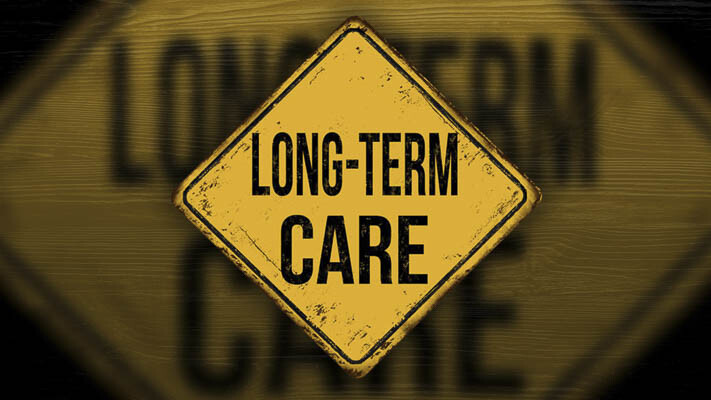
Elizabeth Hovde believes recent proposals, and several others that have come along since the long-term-care law’s passage in 2019, should clearly show workers in the state that WA Cares is not something that should give them ‘peace of mind’
Elizabeth Hovde
Washington Policy Center
In a Tuesday meeting, the Washington state House Health Care and Wellness Committee moved forward two bills related to WA Cares. That’s the social program created by the state’s long-term-care law. The program is to be financed by a payroll tax of 58 cents on every $100 a W2 worker in the state makes, regardless of income. Collection of the tax began in July 2023.

The votes to forward the bills along in the process happened five days after an initiative to the Legislature was certified by Secretary of State Steve Hobbs. I was glad to see that fact was not lost on some of the committee members. They wondered if one of the bills in particular, House Bill 2467, would create an alternative to Initiative 2124 that would be placed on the ballot along with Initiative 2124, which aims to make WA Cares optional, rather than mandatory. (There is a rally happening at the Capitol today as I write this asking lawmakers to address this initiative and five others, something they are constitutionally required to do and are so far ignoring.)
The concern that HB 2467 creates a ballot alternative to the initiative is legit and concerning. I don’t know the answer. Rep. Joe Schmick, R-Colfax, said he didn’t either, even after consulting with attorneys. That makes the five Republican nay-without-recommendation votes on the proposal make a lot of sense. They should be hesitant to move the bill along, even though it could make WA Cares’ dollars portable for potential recipients of fund benefits, something for which taxpayers, critics, some lawmakers and an oversight commission have clamored.
At best, such an alternative could be confusing, as it would apple-orange the question the initiative will pose to voters. At worst, it could trick people who want WA Cares and its payroll tax to be optional into thinking the legislative proposal in HB 2467 makes it so. It doesn’t.
The proposed bill would make the WA Cares benefit portable for some of the people who pay the tax and then move out of state — if they need long-term care and have paid the payroll tax long enough. Right now, that is one of WA Cares’ glaringly unfair details, allowing the state to take workers’ money without any intention of paying for needed long-term care if a worker moves to sun or grandkids in another state.
Even if the bill does not create a ballot alternative unintentionally, I have concerns with it. I testified about those concerns in a hearing in front of this same House committee Friday. That testimony follows:
Hello. I’m Elizabeth Hovde with the Washington Policy Center.
Getting some Washington workers a less-bad deal, as this bill would do, is not the way to solve the many shortcomings of the law that created WA Cares. Repeal is.
House Bill 2467, while attempting to fix one of the many problems with WA Cares, creates new ones. Solvency of the WA Cares fund is already questionable, and the LTSS Trust Commission said that to offer portability in a cost-neutral way, other parameters for fund qualification would need to change for all workers. Watch out for that.
This bill also looks like it sets up different health criteria and delays timelines, and it carries on the WA Cares’ tradition of taking away people’s health and financial choices. Services provided, even in another state, must get Washington’s permission.
WA Cares’ lifetime benefit of $36,500 is not enough, and placing the burden of paying and providing proof of ongoing payments on residents of other states, as this bill does, is another hurdle the state would erect to ensure it pays benefits to as few people as possible, even as the state is saying people can have “peace of mind” knowing WA Cares will be there. For many, it won’t.
WA Cares is not patient-centered, nor is it respectful of workers who have many life needs, not just one.
It should be repealed. To save Medicaid money, lawmakers should continue to create awareness of this possible life need and, even more, end abuse of Medicaid payouts. Medicaid is a safety net, not long-term-care insurance, and it needs to stop being used as if it is.
Thanks for hearing my testimony. I’d love to answer any questions you have.
House Bill 2467 is now Substitute House Bill 2467, and the bill sponsor said an amendment that has been adopted fixed some technical details with the bill that state agencies suggested. It is moving, as is House Bill 2271, which aims to increase people’s knowledge about how much the program is costing them for benefits they are being promised but for which they may or may not ever qualify.
If nothing else, these proposals, and several others that have come along since the long-term-care law’s passage in 2019, should clearly show workers in the state that WA Cares is not something that should give them “peace of mind.” The program’s parameters and promises can change every legislative session.
Elizabeth Hovde is a policy analyst and the director of the Centers for Health Care and Worker Rights at the Washington Policy Center. She is a Clark County resident.
Also read:
- Opinion: OIC tells consumers not to pay for ‘insurance’ you won’t likely benefit from: Does that include WA Cares?Elizabeth New (Hovde) of the Washington Policy Center believes you should consider yourself warned by the Office of the Insurance Commissioner about WA Cares and its maybe-only benefit.
- Opinion: Same road, different speed limit?Target Zero Manager Doug Dahl addresses a question about speed limit signs going into and leaving town.
- Opinion: Hiding the growing cost of the Interstate Bridge replacementJoe Cortright of the City Observatory addresses the rising cost of the Interstate 5 Bridge replacement project.
- Letter: ‘This election I am NOT voting for Greg Cheney’Clark County resident Wynn Grcich shares her thoughts on Rep. Greg Cheney and the issue of fluoridation in area drinking water.
- POLL: Should biological males who identify as females be allowed to compete in athletic events against biological females?Should biological males who identify as females be allowed to compete in athletic events against biological females?










